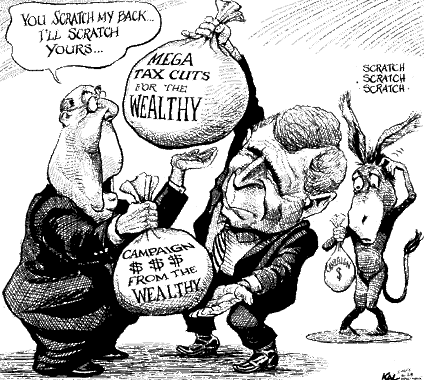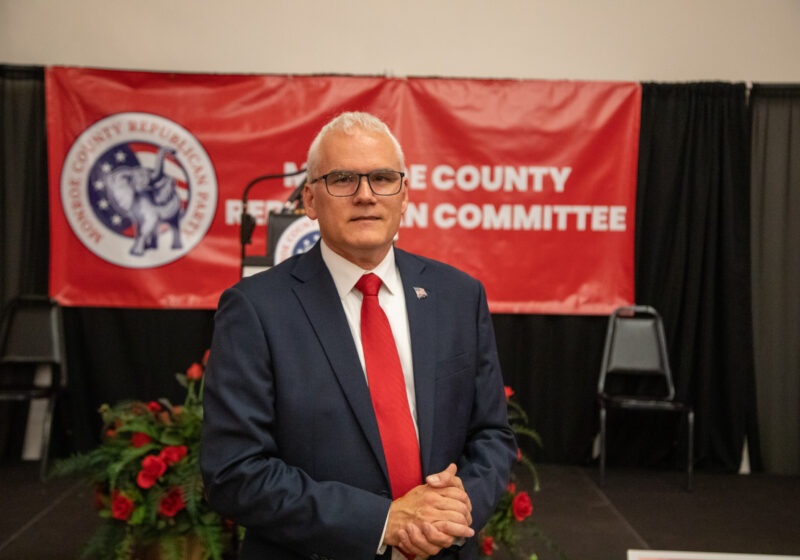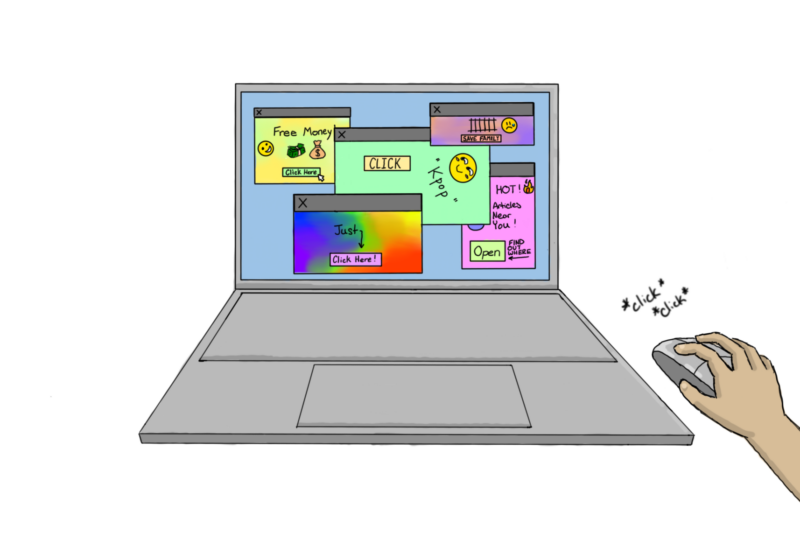
Source: http://www.hermes-press.com
In the 1987 film, “Wall Street,” Michael Douglas’ character Gordon Gekko notoriously said that in capitalism, “it’s a zero-sum game: Somebody wins, somebody loses. Money itself isn’t lost or made, it’s simply transferred from one perception to another.” Messages like these, degrading free markets, have always been widespread, but have gotten ever more pervasive with films like Michael Moore’s “Capitalism: A Love Story” to the more recent documentary, “Inside Job,” all shaming the true merits of a free, capitalist society.
As Michael Moore puts it, “This economic system they call capitalism has no moral or ethical core to it,” nor, he says, is it democratic. Proponents of such absurd ideas are often the first to provide solutions, and what better a solution than the benevolence of big government to fight the evils of Big Oil and Walmart? Not quite, though. Frederic Bastiat’s work “That Which Is Seen, and That Which Is Not Seen” shows just how easy it is to ignore the unforeseen consequences of any action, including big government. Contrary to their own beliefs, opponents of the free market are mistaken when saying that big government is the solution to “evil” businesses. In fact, the very opposite is true — government officials and business leaders have increasingly gotten cozy with another and not for the better. When corporations get handouts at the expense of taxpayers, there’s a problem, and that problem has nothing to do with capitalism. That problem lies in what economist Russ Roberts and many others call, crony capitalism or corporatism.
After all, there has to be a reason why tobacco companies support tobacco regulation, or why “Big Pharma” have spent as much as $150 million on advertisements supporting Obamacare. Why wouldn’t they, when they can get a leg up on the competition? Or gamble with taxpayer dollars, rather their own? Or get bailed out from taking risks without responsibility? Sadly, this case has not been depicted in popular culture. For instance, “Inside Job” showed the corporate “greed” and corruption behind the financial industry and many audiences have interpreted it as a reason for continued regulation. Yet many ignore the fact that it was government involvement that have led to economic problems including the recent economic setbacks. Indeed, it was easy credit led by unsound government policies that eventually “burst” the housing bubble. It was a fundamental error made in the idea of a free price system. Prices convey important messages, and distorting such a valuable mechanism through government involvement with subsidies, regulations and protectionist policies only twists the true intentions of individuals — oftentimes in the wrong direction.
Crony capitalism has been a ubiquitous feature in the American political economy. History is littered with examples of industries turning to government to get an upper hand, from window manufacturers and “green” energy firms to labor unions and banks. Surely someone needs to pick and choose what’s best for us? Yet again, Hayek’s timeless work in the problem of knowledge has shown that no central planner has the wisdom to pick which is right and which is wrong. The problem of knowledge is best left for the free market, and for prices to honestly reflect true values.
Corporations convincing government to force people into buying products, rather than businesses pursuing their own customers, is not fair. In that sense, it may very well be seen as a zero-sum game. Certainly, at the very least, there is nothing more democratic than a capitalist system. The freedom to choose which businesses I like and which I don’t is an inherent trait in a system of free enterprise.
Ultimately, it is the emphasis on an individual’s liberty that ought to be in the center of debate. After all, it has been the ideals envisioned by the Founding Fathers and outlined in the Constitution that has given us the freedom to prosper — so why ignore it now for cronyism?
Yuwono is a member of the class of 2014.




